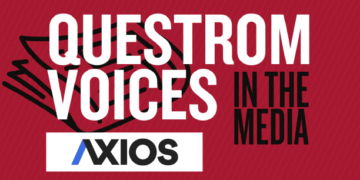by Anna Tari, Remi Trudel
February 26, 2024

Colour Laboratory/Stocksy
Summary. Countries around the world are enacting legislation, known as extended producer responsibility regulations, to make companies more accountable for the end-of-life phase of their products. While companies may fear that these take-back programs would lead to increased costs that drive away consumers, new research suggests differently. A series of studies and field experiments have shown that consumers value a product more highly when it’s part of a take-back program, show a greater willingness to pay, and don’t require any additional purchase incentives.
Extended producer responsibility regulations — which make manufacturers more accountable for the end-of-life phase of their products — are gaining traction in the U.S. and around the world. Some companies, such as Apple, Adidas, Dell, and IKEA, aren’t waiting for regulations and have initiated take-back strategies that allow consumers to return used products to be put back into the production cycle. Other companies have hesitated, fearing that the increased cost of such programs will have to be offset by higher product prices that drive away customers.
Our new research indicates that, in fact, consumers value a product more highly when it is part of a take-back program, show a greater willingness to pay, and don’t require purchase incentives beyond the greater sense of “psychological ownership” that control of a product’s disposal provides.
Using a proprietary data set from a reverse-logistics company that facilitates take-back programs for Fortune 500 companies, we found that customers spent 4.8% more after they became aware of the manufacturer’s take-back program. The data also showed that customers spent 5.9% more on their second visit to the store (after they were aware of the program) than the initial visit, and 9.8% more on their third visit than the first visit.
In addition, we conducted a combination of lab, online, and field experiments using both stated willingness to pay and actual spending behavior. Our results confirmed the higher valuation consumers place on take-back products, demonstrated that control over disposal is a valued feature of product ownership, and suggested some design principles such programs might employ, such as:
Tie the program to specific products.
While promoting your take-back program as part of your general sustainability efforts can be helpful, you should also make an explicit connection with individual products. In our experiments, while we did find that a company could gain positive reputational benefits, we only saw a willingness to pay more for products specific to the take-back program. Advertising, marketing material, and in-store information should make clear that the customer can bring this product back, a strategy that reinforces psychological ownership of the product even before a purchase.
Avoid unnecessary incentives.
Some companies are experimenting with added incentives, like discounts on future purchases and loyalty programs for customers who purchase take-back products. In our experiments, we tested whether providing discounts on new purchases when bringing back clothing or providing reverse logistics impacted consumers’ valuation. We found that consumers are unwilling to pay more for discounts or pick-up and return service, but the results did indicate that consumers would be more loyal to brands that offered incentives.
Foster awareness on the appeal of take-back programs.
Companies should create broad consumer awareness of these programs because, as we found, the more they know the more they are likely to spend on take-back products. By understanding the link between psychological ownership and circular products, consumers can cultivate a deeper connection to their purchases, enabling a more conscious consumption culture. Companies should also educate policymakers about what works and what doesn’t work in take-back programs to help make sure that regulation is fair, effective, and stimulates rather than hampers commerce.
Design and market products to emphasize consumer control.
Take-back programs afford consumers disposal control, which empowers them to avoid waste. More broadly, consumers’ perception of value and psychological attachment to products often hinges on how well a product lets them exert control, acquire intimate knowledge, or establish personal connections. In essence, products that afford consumers greater control and personal linkages are more highly valued. Thus, companies should refine product design — for example, building in settings that can be changed by the consumer — to emphasize greater feelings of ownership.
Our research underscores the demand side of extended producer responsibility regulations and the proactive strategies adopted by companies like Apple, Adidas, Dell, and IKEA. By demonstrating that consumers place higher value on products participating in take-back programs and exhibit increased spending behavior, our findings offer valuable insights for businesses navigating the sustainability landscape. Emphasizing product design that enhances control and emotional connection, tying programs to specific products, and fostering consumer awareness are pivotal steps toward fostering a more sustainable and conscientious consumption culture while navigating the evolving regulatory landscape. Moreover, our research advocates for informed policymaking that supports rather than hampers the advancement of circular economy initiatives, promoting a mutually beneficial relationship between commerce, sustainability, and consumer behavior.
























